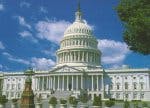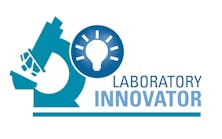By Carren BerschWashingtons view for 2003On Jan. 7, the 108th Congress convened. U.S. Sen. Bill Frist, (R-TN) and the first physician elected to the Senate since 1928, voiced his goal for the coming year: I hope we will seize this historic opportunity to reduce the ranks of the uninsured, strengthen the nations public health system to protect against bioterrorism and other public health threats, expand lifesaving medical and scientific research, ensure a safe and stable vaccine supply and improve the safety and quality of our healthcare delivery system. While the Bush Administration has laid out its priorities for healthcare, various organizations in Washington have defined their agendas for 2003 giving insight into the depth and breadth of healthcare issues confronting lawmakers:Vince StineDirector, Government Affairs American Association for Clinical Chemistry (AACC)
On Rx drug benefits: Given the Republican takeover of the Senate, and the 2004 elections, there is likely to be a renewed push for some form of prescription drug benefits and Medicare reform. On lab reimbursements: The President and Congress have pledged to hold the line on spending to reduce the federal deficit, likely meaning that the Administration will propose cuts in laboratory reimbursement. This list could contain any combination of: the adoption of competitive bidding; the re-establishment of coinsurance; and the elimination ora reduction in the Consumer Price Index (CPI) update. Clinical laboratories will need to remain vigilant to fend off these payment cuts.John
Sherer, MTJudiciary Councilor
American Medical Technologists (AMT)
On HIPAA compliance: Id list the number one issue as HIPAA compliance. We have many standards concerning the Privacy Rule to implement by April 14. What we have done thus far has been a piece of cake compared to what must come in year 2003.On NCD implementation: While National Coverage Determinations (NCD) were to have been implemented by Nov. 25, 2002, this is a huge project coming right on the heels of the new Advance Beneficiary Notice (ABN) requirement, and the NCD frequencies are going to be a nightmare to administer, requiring many computer system changes for labs and client education. We anticipate that the new frequency-limitation requirements will cause much confusion to patients when they are asked to sign an ABN every time they have certain limited coverage tests with frequency limitations, increasing the labor of those drawing the outpatient specimens and creating even more stress between laboratory and patient. On new CPT codes and personnel shortages: We always have to deal with implementation of new Current Procedural Terminology (CPT) codes. Another issue will be increased shortage of laboratory personnel. On reimbursements: Im sure the lab coalition will again attempt to get some relief on reimbursement issues, such as the phlebotomy fee, which has been set at $3 for 19 years; meanwhile, the government keeps adding more safety requirements and administrative requirements, such as the ABN. The industry requested the fee be adjusted to $5.25 last year and got no action. On homeland security issues: Bioterrorism could explode at anytime.Robert A. Neri, DLM(ASCP), CHEExecutive Vice President
Clinical Laboratory Management Association (CLMA)
On the workforce shortage: The industry is beginning to see funding opportunities for studies to further explore shortage issues. However, we have not heard much about funding allocation for training programs, supposedly a benefit from the 2002 bioterrorism bill. It is our intention to press the Federal Government to allocate funding for educational support in order to alleviate the closure threats that so many undersubscribed training programs have experienced, particularly in the past two years. On lab reimbursements: We will continue our efforts to mitigate against the competitive bidding initiative for lab services, an issue even the Institute of Medicine determined had little value to the government. On CPI Updates: We are also very pleased that for the first time in five years labs have again begun to receive a Consumer Price Index update. This is a success, and ensuring that the freeze is not reintroduced in the future is a priority for CLMA. We are keeping a close eye on that since a conservative Congress will continue to be pressured to save money.Jeff JacobsAssociate Executive Director Policy & Programs
Association of Public Health Laboratories
On 2003 appropriations: There is a need to obtain ongoing funding for lab facilities for both equipment and staff. Well be requiring funding for training for lab professionals for biological terrorism, chemical terrorism and smallpox, as well as emerging infectious diseases and other threats. On workforce issues: We need to fill lab positions. This is an urgent need for the entire laboratory community, as it continues to build capacity and capabilities for bioterrorism. We are involved in rollout of the smallpox preparedness vaccine program, and laboratory leaders must prepare to have their labs up to speed to be able to provide diagnostics for smallpox.On communication: A high priority is to continue both to improve flow of information among labs public and private and to continue to establish relationships at state and national levels to promote collaboration.
On Rx drug benefits: Given the Republican takeover of the Senate, and the 2004 elections, there is likely to be a renewed push for some form of prescription drug benefits and Medicare reform. On lab reimbursements: The President and Congress have pledged to hold the line on spending to reduce the federal deficit, likely meaning that the Administration will propose cuts in laboratory reimbursement. This list could contain any combination of: the adoption of competitive bidding; the re-establishment of coinsurance; and the elimination ora reduction in the Consumer Price Index (CPI) update. Clinical laboratories will need to remain vigilant to fend off these payment cuts.John
Sherer, MTJudiciary Councilor
American Medical Technologists (AMT)
On HIPAA compliance: Id list the number one issue as HIPAA compliance. We have many standards concerning the Privacy Rule to implement by April 14. What we have done thus far has been a piece of cake compared to what must come in year 2003.On NCD implementation: While National Coverage Determinations (NCD) were to have been implemented by Nov. 25, 2002, this is a huge project coming right on the heels of the new Advance Beneficiary Notice (ABN) requirement, and the NCD frequencies are going to be a nightmare to administer, requiring many computer system changes for labs and client education. We anticipate that the new frequency-limitation requirements will cause much confusion to patients when they are asked to sign an ABN every time they have certain limited coverage tests with frequency limitations, increasing the labor of those drawing the outpatient specimens and creating even more stress between laboratory and patient. On new CPT codes and personnel shortages: We always have to deal with implementation of new Current Procedural Terminology (CPT) codes. Another issue will be increased shortage of laboratory personnel. On reimbursements: Im sure the lab coalition will again attempt to get some relief on reimbursement issues, such as the phlebotomy fee, which has been set at $3 for 19 years; meanwhile, the government keeps adding more safety requirements and administrative requirements, such as the ABN. The industry requested the fee be adjusted to $5.25 last year and got no action. On homeland security issues: Bioterrorism could explode at anytime.Robert A. Neri, DLM(ASCP), CHEExecutive Vice President
Clinical Laboratory Management Association (CLMA)
On the workforce shortage: The industry is beginning to see funding opportunities for studies to further explore shortage issues. However, we have not heard much about funding allocation for training programs, supposedly a benefit from the 2002 bioterrorism bill. It is our intention to press the Federal Government to allocate funding for educational support in order to alleviate the closure threats that so many undersubscribed training programs have experienced, particularly in the past two years. On lab reimbursements: We will continue our efforts to mitigate against the competitive bidding initiative for lab services, an issue even the Institute of Medicine determined had little value to the government. On CPI Updates: We are also very pleased that for the first time in five years labs have again begun to receive a Consumer Price Index update. This is a success, and ensuring that the freeze is not reintroduced in the future is a priority for CLMA. We are keeping a close eye on that since a conservative Congress will continue to be pressured to save money.Jeff JacobsAssociate Executive Director Policy & Programs
Association of Public Health Laboratories
On 2003 appropriations: There is a need to obtain ongoing funding for lab facilities for both equipment and staff. Well be requiring funding for training for lab professionals for biological terrorism, chemical terrorism and smallpox, as well as emerging infectious diseases and other threats. On workforce issues: We need to fill lab positions. This is an urgent need for the entire laboratory community, as it continues to build capacity and capabilities for bioterrorism. We are involved in rollout of the smallpox preparedness vaccine program, and laboratory leaders must prepare to have their labs up to speed to be able to provide diagnostics for smallpox.On communication: A high priority is to continue both to improve flow of information among labs public and private and to continue to establish relationships at state and national levels to promote collaboration.
Carren
Bersch, managing editor of MLO, formerly specialized in legislative issues for a major Washington, D.C. pharmaceutical association. As has been the history of MLOs Washington Report, this space will be
devoted in 2003 to keeping readers abreast of ongoing issues and new legislation affecting the clinical laboratory and its professional managers and technicians. If there is a particular legislative question or a legislative topic of special interest to your organization, please e-mail:
[email protected]. January 2003: Vol. 35, No. 1
Bersch, managing editor of MLO, formerly specialized in legislative issues for a major Washington, D.C. pharmaceutical association. As has been the history of MLOs Washington Report, this space will be
devoted in 2003 to keeping readers abreast of ongoing issues and new legislation affecting the clinical laboratory and its professional managers and technicians. If there is a particular legislative question or a legislative topic of special interest to your organization, please e-mail:
[email protected]. January 2003: Vol. 35, No. 1






